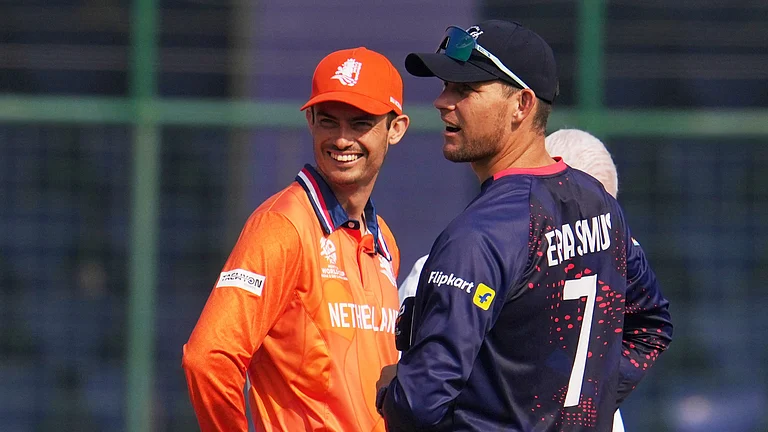'India's Two Great Emperors Were Both Non-Hindu'
On the Hindutva version of Indian history - and how India was never a Hindu rashtra.

'India's Two Great Emperors Were Both Non-Hindu'
'India's Two Great Emperors Were Both Non-Hindu'
Though extremely busy with a workshop on 'education, equity and human security' in Calcutta, Nobel Laureate Professor Amartya Sen still took time out to talk to Outlook, and articulate his views on the Hindutva version of Indian history. Sen had condemned the Babri Masjid demolition in 'Threat To Secular India', published in the New York Review shortly after the epoch-changing incident. Here he describes the Hindutva version of Indian history as sectarian and combative, and argues that India was never a Hindu rashtra. Excerpts from an exclusive interview with Subhoranjan Dasgupta:
In your address to the Calcutta History Congress last year, you described the spirit and discipline of history as 'capacious heterodoxy'. That's a wonderful expression. Could you please elaborate on it?
If the study of Indian history is infused by this spirit, what sort of textbooks should our schoolgoers be reading? Because there is a current effort, for instance, to portray the Muslim period as an age of darkness.
Your grandfather Kshitimohan Sen wrote the classic text Hinduism (Penguin Books, 1960). In what basic sense does his vision of Indian history and civilisation, or for that matter the vision of Rabindranath Tagore, differ from the saffron family's version?
The Religion of Man
Hindu Musalmaner Jukta Sadhana
Isn't there an affinity between the saffron version of Hindutva and Samuel Huntington's categorisation of Indian civilisation as Hindu?
Historian Romila Thapar has described Hindutva's history as propaganda where the past is manipulated as political instrument. What is the political goal in question—a Hindu rashtra?
Must a 'Hindutva' history necessarily depend on half-truths, lies and legends to sustain itself? For example, that ancient India revered the cow as 'gomata' and did not consume beef; that Akbar was a foreigner, despot and sectarian?
Could you give just one?
The publication of the Towards Freedom volume edited by Sumit Sarkar and K.N. Panikkar has been thwarted by the ICHR, apparently because it exposes the 'loyalist' role of the rss in the 1940s.
No one would claim that whatever the 'secular' school of historians has done from Sushobhan Sarkar onwards is flawless. In fact, quite a few critiques have been levelled against secularism per se and you have examined them in your essay 'Secularism and its Discontents'. But do these offer a better alternative in the Indian context?
It has been proposed that religious leaders, like sadhus and imams, should vet history texts so that unpalatable facts—that could injure impressionable minds and specific communities—can be carefully eliminated from textbooks?
HRD minister Dr Murli Manohar Joshi has described those he calls 'Marxist' historians, like Irfan Habib, Sumit Sarkar and liberals like Romila Thapar, as 'worse than terrorists'...
Published At:
MOST POPULAR
WATCH
MORE FROM THE AUTHOR
PHOTOS
×

























